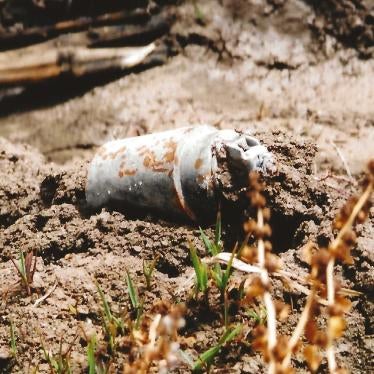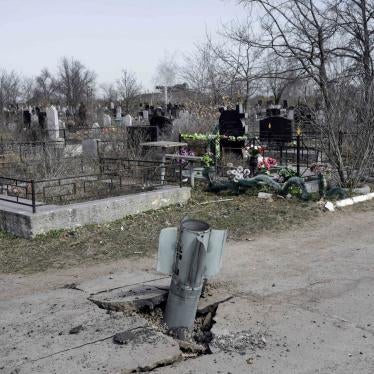Geneva, Switzerland
Thank you for the floor, Co-chair. Earlier today we had the chance to give a general overview of stockpile destruction, one that included an expression of grave concern about the ongoing violation of the treaty by Belarus, Greece, and Turkey. We must now express our shock and dismay that only three States Parties have spoken on this matter. We appreciate that Norway, Canada, and Australia all made appropriately strong interventions, but the silence from other States Parties is nearly as disconcerting as the sustained non-compliance by Belarus, Greece, and Turkey. In a treaty that is not built to impose sanctions or concrete penalties, pressure from fellow States Parties is crucial to ensuring obligations are respected. Silence sends the signal that violation of core obligations is perfectly acceptable.
We would now like to turn to the paper and recommendations approved by the Ninth Meeting of States Parties on "Ensuring the full implementation of Article 4" to examine whether the suggested steps to address compliance concerns have been put into place.
- First, the paper calls on non-compliant States Parties to "act in a committed and transparent way,... providing a date and plan to ensure compliance as soon as possible, including an expected completion date."
More than one year after the three states missed their March 1, 2008 deadline and six months after this paper was agreed, we still do not have a fixed date for completion from any of them. We appreciate the updates provided earlier today by Greece, Turkey, and Belarus, but none has committed to a timeline. Greece hopes to be done by the Second Review Conference in November, Turkey hopes to be done sometime in 2010, and Belarus hopes to begin sometime in 2010. This continued vagueness from three States Parties in sustained violation of the treaty stands in stark contrast to the willingness of so many other States Parties who legally committed themselves to a firm date and met it. We strongly encourage Greece, Turkey, and Belarus to provide an expected schedule of completion and stick to it.
- Second, the paper calls on the Co-Chairs of the Standing Committee on Stockpile Destruction to "hold informal consultations with concerned States Parties, donors and relevant experts. Consultations as a preventative measure should be undertaken well in advance of deadlines to achieve their intended impact."
We welcome the active engagement by the co-chairs with Belarus and Ukraine in attempting to help them resolve the technical and financial challenges to destroying their large PFM stockpiles. We note with concern the continued slow pace of progress in these cases, however. With only one year left before Ukraine's deadline, we are running out of time to find any solution that will enable them to finish destruction by their deadline. We would like to see similar engagement with Greece and Turkey to determine what steps might be taken to increase the capacity in the munition destruction facilities charged with destroying their stockpiles.
- Third, the paper said that States Parties in the process of implementing Article 4 are encouraged to communicate their plans to implement Article 4 to other States Parties, through annual transparency reports, at every meeting of the Standing Committee on Stockpile Destruction and at every meeting of the States Parties, successively reporting increasing progress that is being made towards the fulfillment of Article 4 obligations.
In this context, we would like to repeat our recommendation that States Parties that have missed their deadline provide a monthly update on progress toward destroying the mines in the shortest possible timeline. We believe this level of transparency is the minimum other States Parties could expect from a state in non-compliance with the treaty. We appreciate the two updates submitted by Belarus earlier this year following this recommendation, as well as the March update from Turkey. At the same time, we think there should be a strong call by States Parties on all three states to commit to monthly reports, and that this recommendation be included in the Cartagena Action Plan.
- Fourth, the paper said that States Parties should use a variety of means to encourage and facilitate, where appropriate, the destruction of stockpiled anti-personnel mines by States Parties concerned, including by engaging States Parties that must implement Article 4 in a dialogue if, one year after entry into force, such States Parties do not have plans to implement Article 4 by their deadlines and if, two years after entry into force, no progress in the destruction of stockpiled mines has been reported.
We note that Kuwait became a State Party on 1 January 2008, but 1.5 years later we still do not have information on their plans to destroy their mines or on any mines already destroyed. While it is expected that there should be no technical or other impediments to Kuwait finishing by its deadline, the paper rightly notes that states should begin immediately to plan for and carry out the destruction of their mines, not wait until the last minute. We strongly encourage Kuwait to follow the good example of many other States Parties and destroy their mines this year so we can mark the achievement at the Review Conference.
In conclusion, we appreciate the effort made by the co-chairs to redress the damage to the treaty caused by these cases of non-compliance and the appallingly low-key response from other States Parties. But to ensure this damage is not long-term, we still need to see more proactive steps taken by all States Parties-those that are in non-compliance and those that should be working with them to ensure full compliance with the treaty. We cannot afford to sit back and wait to hear at the Review Conference if progress was as fast as expected, or if we will be disappointed once again.
We believe that it would be appropriate for States Parties to include in the Declaration that emerges from the Review Conference a statement expressing grave concern that Belarus, Greece, and Turkey missed their deadlines and remain (or remained) in violation for such an extended period of time, and vowing to work together to prevent the recurrence of such a situation. States Parties must put in a mechanism-through reporting, meetings, or whatever it takes-to ensure that they do not passively wait for compliance to happen, but jointly work with the States Parties in question to make it happen. For the future health of the convention, we ask you do so.







